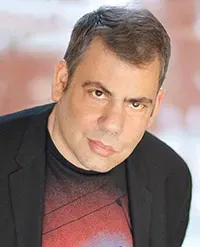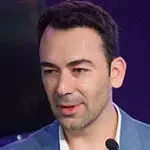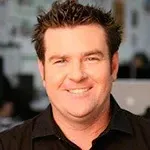Opening the transmedia toolbox
Written by

Anna Jackson reports back with tips and tools from Jeff Gomez and other local and international producers at a Transmedia Toolbox event at Unitec in Auckland.
* * *
Over the last few years, most of the conversations I've had with people in New Zealand about transmedia have revolved around explaining and defining 'the T word'. Last week I felt like we'd finally reached a tipping point with a two-day event in Auckland (made possible by ASDCS, WIFTNZ, UNITEC and Transmedia NZ), where the focus was not just on the concept, but the practice of transmedia. Headlined by transmedia legend Jeff Gomez, the event brought together a great pool of local and international knowledge. Here's a taste of what was covered:
Transmedia on the international stage
Jeff Gomez, CEO of Starlight Runner Entertainment has spearheaded international transmedia campaigns for superbrands such as Mattel, Walt Disney Company, Coca-Cola, Sony Pictures Entertainment (the list goes on!). Which all sounds terribly impressive, but what relevance does the world of superheroes and big budget franchises have to low-budget New Zealand? In a word, story; the essential media element that transcends platforms, budget and location. Gomez's tales of Hollywood and Madison Ave are captivating, but his underlying message is that without a fully realised, expansive storyworld and appealing characters no amount of money will make a project work. And despite working with 'evil' superbrands like Coca-Cola, Gomez has a lot to say about values, integrity and the power of media to affect social change.
Special guests from Australia, Nathan Mayfield of Hoodlum & Alex Alexander of FourTwelve also come from a very different media environment, but demonstrate that it's possible to crack the global market with entrepreneurial skills, creative talent and determination. Having a larger population (and therefore market), two strong public service broadcasters and both regional and national screen funding agencies with strong innovation policies, in my opinion has made life easier for Australian producers. However, it has still taken a lot of persistence for transmedia producers across the Tasman to build a multiplatform culture, but now companies like Hoodlum and FourTwelve are in demand internationally.
Transmedia in New Zealand
Local context
Athina Tsoulis, filmmaker and Deputy Executive Dean at Unitec's Faculty of Creative Industries and Business shared her experiences as a local filmmaker exploring transmedia as a way to tackle the challenges of film production and distribution in the digital networked age. You can follow her latest project, Stars in Her Eyes on Facebook.
The Power of social media
Mario Faumui, (Researcher & Writer, Fresh & The Coconet), Virginia Gow, (WW100 Programme Office) and Kerry Warkia, (Actress/Producer/Co-Executive Producer, Auckland Daze) showed how important (and powerful) social media is in terms of audience engagement.
Fresh is a youth-oriented Pacific TV show that screens at 10am Saturdays on TV2. Not the best TV slot, but the show is available OnDemand and YouTube and has more than 18,000 likes on Facebook.What's really exciting about Fresh is how active the audience is as a community. This is being developed further with thecoconet.tv, "an online poly portal" funded by NZ On Air's Digital Content Fund (Kickstart). Check out this user-generated video, submitted to The Coconet's Beyonce competition.
WW100 is a Ministry for Culture and Heritage programme that marks the centenary of the First World War with a range of public projects. Virginia Gow of WW100 spoke about one key initiative, Life 100 Years Ago, which represents the experience of New Zealander's living through WW1 via Twitter through daily snippets from diaries, letters, newspapers etc. The Life 100 Years Ago feed combines individual twitter accounts that each represent a real person, curated by representatives from a range of institutions.
Auckland Daze began life as a webseries supported by NZ On Air, which initially appeared on TVNZ OnDemand before making its way to television. Auckland Daze has made great use of Twitter and Facebook to involve the audience, incorporating their ideas into the show content. The show recently achieved the distinction of creating the world's first instagramisode. That's right, a whole episode made via instagram, on location in Thailand!
Investing in transmedia
Brenda Leeuwenberg, Digital Advisor, NZ On Air and William McKegg, Lion Rock Ventures represented both public and private models of transmedia investment.
New Zealand On Air has had a digital fund since 2007, and has used the fund to support the development of various kinds of non-broadcast digital content. There are now two strands to the digital media fund, Kickstart and Ignite, both of which focus on special interest audiences. Kickstart is a fund of $800,000 for interactive or transmedia projects up to $300,000 and web series or webisodes up to $100,000. Ignite is a $200,000 fund aimed at smaller projects of up to $45,000.
NZ On Air doesn't require broadcaster involvement for Digital Media Fund projects, which has perhaps meant that NZ hasn't followed the same kind of multiplatform development as other countries (like Australia), but this policy has allowed for a degree of experimentation without the limitations that come with broadcast partnerships. Web series, for example, have given producers opportunities to explore news ways of engaging with and expanding niche audiences and has opened up new partnership opportunities; The Factory, was co-funded with Telecom while Hook Ups appeared weekly on the New Zealand Herald Online and was accompanied by an iPhone app.
Brenda Leeuwenberg, NZ On Air's Digital Advisor, discussed some of the challenges that producers of digital content need to address, such as knowing your audience, finding ways to stand out from the crowd, maintaining momentum and sustaining interest over time. It's important to find the right match in terms of media partnerships and to leverage connections as much as possible (tying into existing audiences or leveraging connections with existing fan bases).
William McKegg is the Executive Director of Lion Rock Ventures, a company that has developed New Zealand's beloved Buzzy Bee toy into a global transmedia property, which currently involves the production of a TV show, apps, online community content as well as toys and merchandise. McKegg's experience with BuzzyBee and Friends shows how transmedia can enable local businesses to tap into a global market.
The changing nature of collaboration
Cody Bunea, CTO & Co-Founder, Carnival Labs, Stephen Knightly, Director, InGame and David McLaughlin, Principal, McLaughlin Law explored some of the aspects of transmedia that practitioners from traditional media backgrounds may be less familiar with, such as app and game development and the complexities of copyright and ownership in the transmedia or multiplatform space.
Cody Bunea is the CTO and co-founder of Carnival Labs, one of the world's leading mobile development companies (based in Wellington and New York). Carnival Labs has worked with clients such as DreamWorks Animation, Kraft Foods, OREO, Time Warner, Sony, Air New Zealand, and has won numerous awards. Mobile is forecast to outsell laptops/desktops by a ration of 5:1 this year and social media and games are where the key growth is. However, if you're looking to develop an app you need to be aware that downloading isn't the same as using; 70% of users won't open apps after the first week, so (like any kind of content) you need to design for longterm engagement.
Stephen Knightly is the director of video game consultancy, InGame and the chairperson of the New Zealand Game Developers Association. Like Cody, Stephen shared eye-opening statistics about the growth and demographics of the games industry; the average player is far more likely to be a thirty-something female than a spotty teenage boy, so forget old assumptions about who plays games. Game (and mobile) development is based on iterative cycles, quite different to the traditional screen production model of development, production and distribution, so it's useful for producers from other backgrounds to understand processes and concepts such as the software release cycle.
David McLaughlin, Principal at McLaughlin Law outlined the key legal issues in transmedia such as determining ownership, obtaining licenses for multiple platforms and third party rights. This is very complex territory, but fortunately David has written a summary on the McLaughlin Law blog, Law Will Tear Us Apart.
It was great to spend two days talking transmedia, and it felt like there were many conversations to continue. Transmedia NZ plans to resume a monthly meet-up very soon. You can sign up to our new meet-up or watch Facebook or Twitter for an announcement about the next meet-up date and location.

